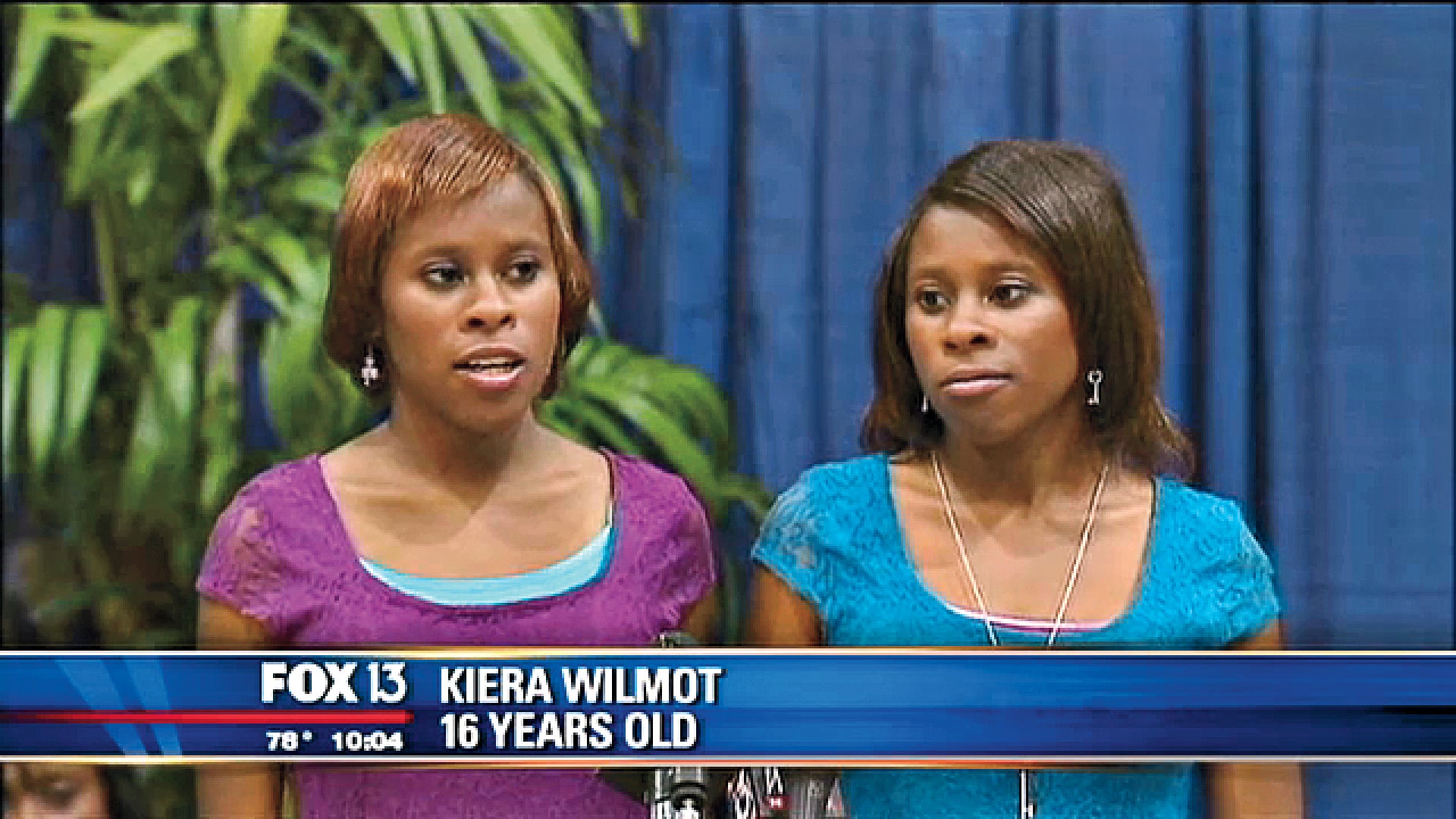
I can still hear her screams from the television news report. In 2005, Ja’eisha Scott, just 5 years old at the time, had been sent to the assistant principal’s office for refusing to participate in a jelly bean counting game. Once in the school official’s office, Ja’eisha threw a temper tantrum, pulling items from the wall. The St. Petersburg police were called to Fairmount Park Elementary School. By the time the officers arrived, Ja’eisha had calmed down, yet she was handcuffed and escorted out to a police cruiser. She cried as her tiny hands were cuffed behind her back and her feet were bound by plastic restraints. Later that day, she was released to her mother.
I wish I could say Ja’eisha’s experience was an anomaly, but each year Black kids are suspended, expelled and even arrested in school at alarming rates. In 2013, exemplary Bartow, Florida, student Kiera Wilmot, 16, was pulled from her class, handcuffed, arrested and suspended, and faced expulsion over a science experiment gone awry. Kiera had made a simulated volcano, but it unexpectedly caused a small eruption. Although no one was harmed, she was charged with two felonies: possessing or discharging weapons or firearms and making a destructive device. Eventually, the charges were dropped and she was allowed to return to school, but an arrest record stemming from the incident followed her when she applied for college and will likely arise when she seeks employment.
It’s not just Florida. According to the U.S. Department of Education, African-American students across the country are disciplined more harshly and more frequently than other students. Our kids are pushed out of the classroom for offenses as trivial as wearing the wrong color uniform, or for arbitrary offenses such as “insubordination” or “defiance.” And criminalization has deep consequences—a 2009 study shows that a single out-of-school suspension in the ninth grade increases the likelihood of a student dropping out altogether.
To address this problem, as co- director of Advancement Project, a civil rights organization, I worked with a Denver-based grassroots group, Padres y Jóvenes Unidos, on drafting and helping to pass The Smart School Discipline Law in 2012. One measure stipulates that districts must implement strategies, like peer mediation and counseling, to minimize student exposure to the criminal justice system. As a result of the law, Colorado’s 179 school districts reduced out-of-school suspensions by 10 percent and slashed expulsions by 25 percent.
Commonsense school discipline allows our children to learn from their mistakes, not pay for them for the rest of their lives. Fortunately, a growing chorus of communities nationwide is advocating for reform. Here’s what you can do to ensure our children are placed on pathways to colleges and careers, not prison:
1. Review your school’s discipline code to determine if zero-tolerance policies, which are overly punitive, are in place.
2. Encourage your school to remove subjective, racially biased infractions, such as “disrespect,” from the code of conduct.
3. Urge your school to limit the role of police in disciplinary matters.
4. Push your district to require racial bias training for teachers and administrators.
Visit safequalityschools.org for more info.
This article was originally published in the September 2014 issue of ESSENCE, on newsstands now.
